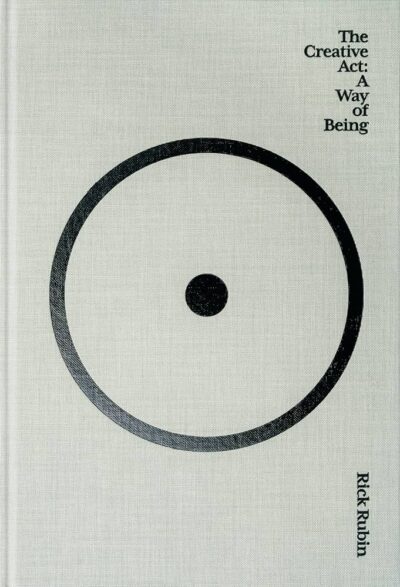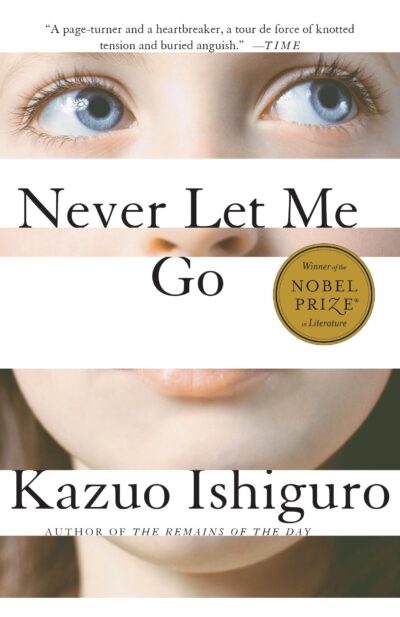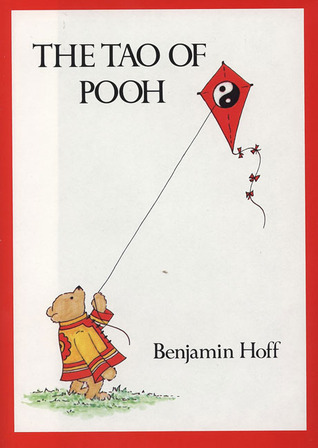182 Results with the "Philosophical" genre
Adventure Fiction (1164)
Biography (435)
Business & Finance (1)
Children's Literature (124)
Comics (6)
Culture (51)
Drama (123)
Dystopian (29)
Fable (86)
Fantasy (1132)
Fantasy (203)
Fiction (1010)
Finance (1)
Gothic Fiction (12)
Historical Fiction (615)
History (122)
Horror (56)
Lifestyle (36)
Literary (404)
Literary Fiction (207)
Memoir (113)
Mystery (422)
Non-fiction (87)
Novel (549)
Paranormal Fiction (96)
Philosophy (45)
Poetry (249)
Political Fiction (14)
Politics (42)
Practical (32)
Psychological (4)
Psychological Thriller (108)
Relationship (6)
Romance Novel (716)
Romantic Melodrama (14)
Satire (91)
Science (46)
Science Fiction (345)
Self-help (68)
Society (65)
Society (2)
Spiritual Growth (1)
story (2)
Thriller (704)
True Crime (56)
view (11)
Women's Fiction (2)
Young Adult (233)
-
Chapter
Adaptation
 The process of adaptation is a fascinating phenomenon, particularly evident in the journey of mastering a skill, such as playing a musical instrument. This learning experience is characterized by alternating phases of progress and struggle, where challenges seem insurmountable one day yet effortlessly resolved after a brief period of rest. Unlike traditional learning methods that rely on repetitive memorization, adaptation through practice involves a more intricate and subconscious transformation, where…
The process of adaptation is a fascinating phenomenon, particularly evident in the journey of mastering a skill, such as playing a musical instrument. This learning experience is characterized by alternating phases of progress and struggle, where challenges seem insurmountable one day yet effortlessly resolved after a brief period of rest. Unlike traditional learning methods that rely on repetitive memorization, adaptation through practice involves a more intricate and subconscious transformation, where…-
341.4 K • Ongoing
-
-
Story
Never Let Me Go
 In Never Let Me Go, Kazuo Ishiguro weaves a haunting and introspective tale set in an alternate-reality 1990s England, where Kathy H., a carer, reflects on her childhood at Hailsham, an idyllic yet unsettling boarding school. As Kathy reunites with her former classmates Ruth and Tommy, she confronts the dark truth about their existence: they are clones, created solely to provide organ donations for “normal”…
In Never Let Me Go, Kazuo Ishiguro weaves a haunting and introspective tale set in an alternate-reality 1990s England, where Kathy H., a carer, reflects on her childhood at Hailsham, an idyllic yet unsettling boarding school. As Kathy reunites with her former classmates Ruth and Tommy, she confronts the dark truth about their existence: they are clones, created solely to provide organ donations for “normal”…-
2.1 K • Jul 23, '25
-
2.4 K • Jul 23, '25
-
2.5 K • Jul 23, '25
-
-
Chapter
Practice
 Developing a heightened awareness of one’s surroundings is an invaluable practice for artists, creatives, and individuals seeking to live with greater presence and purpose. In nature, animals focus intently on survival, their attention honed on securing food, shelter, and safety. However, for human beings, particularly those engaged in artistic pursuits, a narrow focus can sometimes be limiting rather than helpful. Creativity thrives on an expansive perspective, one that absorbs and synthesizes…
Developing a heightened awareness of one’s surroundings is an invaluable practice for artists, creatives, and individuals seeking to live with greater presence and purpose. In nature, animals focus intently on survival, their attention honed on securing food, shelter, and safety. However, for human beings, particularly those engaged in artistic pursuits, a narrow focus can sometimes be limiting rather than helpful. Creativity thrives on an expansive perspective, one that absorbs and synthesizes…-
341.4 K • Ongoing
-
-
 Life often unfolds in ways that defy our expectations, presenting challenges that force us to confront uncertainty head-on. A treasured manuscript may be lost to an unexpected disaster, a deeply cherished relationship may dissolve without warning, or a secure career path may suddenly veer into the unknown. These moments, while painful, invite a shift in perspective—one that embraces "connected detachment." This approach does not call for emotional indifference but rather encourages us to step back and…
Life often unfolds in ways that defy our expectations, presenting challenges that force us to confront uncertainty head-on. A treasured manuscript may be lost to an unexpected disaster, a deeply cherished relationship may dissolve without warning, or a secure career path may suddenly veer into the unknown. These moments, while painful, invite a shift in perspective—one that embraces "connected detachment." This approach does not call for emotional indifference but rather encourages us to step back and…-
341.4 K • Ongoing
-
-
Chapter
The Gatekeeper
 Within the creative process, every idea must pass through a crucial checkpoint—the gatekeeper, often recognized as the editor. This individual wields significant influence, shaping how a final piece of work is presented to the world, functioning as both a curator and a sculptor of raw ideas. The editor’s primary role is to enhance the most vital aspects of a creation while stripping away unnecessary elements, refining it into its most impactful and polished form. Editing is not just a mechanical…
Within the creative process, every idea must pass through a crucial checkpoint—the gatekeeper, often recognized as the editor. This individual wields significant influence, shaping how a final piece of work is presented to the world, functioning as both a curator and a sculptor of raw ideas. The editor’s primary role is to enhance the most vital aspects of a creation while stripping away unnecessary elements, refining it into its most impactful and polished form. Editing is not just a mechanical…-
341.4 K • Ongoing
-
-
Chapter
Intention
 Intention shapes the foundation of every creative endeavor, infusing depth, meaning, and authenticity into the final work. More than just an idea or goal, intention represents a deep alignment between thought, action, and purpose, guiding artists, writers, and creators in their process. This chapter explores how the unseen force of intention influences not only the quality of work but also the experience of creating, transforming routine acts into profound expressions of dedication and mindfulness. In a…
Intention shapes the foundation of every creative endeavor, infusing depth, meaning, and authenticity into the final work. More than just an idea or goal, intention represents a deep alignment between thought, action, and purpose, guiding artists, writers, and creators in their process. This chapter explores how the unseen force of intention influences not only the quality of work but also the experience of creating, transforming routine acts into profound expressions of dedication and mindfulness. In a…-
341.4 K • Ongoing
-
-
Chapter
Great Expectations
 In Great Expectations, the chapter delves into the psychological complexities that accompany the beginning of any ambitious creative endeavor. Whether an individual is an experienced professional or an aspiring artist, the initial stages of a project often bring a mix of excitement and unease. This emotional tension arises from the unpredictable nature of the creative process—where one’s vision is clear but the execution remains uncertain, leaving room for both great success and possible…
In Great Expectations, the chapter delves into the psychological complexities that accompany the beginning of any ambitious creative endeavor. Whether an individual is an experienced professional or an aspiring artist, the initial stages of a project often bring a mix of excitement and unease. This emotional tension arises from the unpredictable nature of the creative process—where one’s vision is clear but the execution remains uncertain, leaving room for both great success and possible…-
341.4 K • Ongoing
-
-
Chapter
Chapter 2: The How of Pooh?
 Chapter 2: The How of Pooh? In this chapter, Hoff introduces Pooh to the concept of Taoism, a philosophy many people are not familiar with. Hoff believes the best way to start understanding Taoism is by exploring its roots in China. To help explain this, Hoff and Pooh imagine themselves walking through a Chinese city, where they encounter a calligraphy shop. The shopkeeper presents them with a painted scroll called "The Vinegar Tasters." This scroll features three figures—Confucius, Buddha, and…
Chapter 2: The How of Pooh? In this chapter, Hoff introduces Pooh to the concept of Taoism, a philosophy many people are not familiar with. Hoff believes the best way to start understanding Taoism is by exploring its roots in China. To help explain this, Hoff and Pooh imagine themselves walking through a Chinese city, where they encounter a calligraphy shop. The shopkeeper presents them with a painted scroll called "The Vinegar Tasters." This scroll features three figures—Confucius, Buddha, and…-
68.0 K • Ongoing
-
-
Chapter
Crafting
 The crafting phase in the artistic process represents a vital shift, moving away from the unbounded freedom of initial exploration toward a more methodical and structured development. It’s the stage where the initial bursts of inspiration start to take shape into something more concrete. This transformation requires the artist to shift from open-ended curiosity into focused action, where they refine ideas and develop them into a completed project. The joy and spontaneity of the early creative process…
The crafting phase in the artistic process represents a vital shift, moving away from the unbounded freedom of initial exploration toward a more methodical and structured development. It’s the stage where the initial bursts of inspiration start to take shape into something more concrete. This transformation requires the artist to shift from open-ended curiosity into focused action, where they refine ideas and develop them into a completed project. The joy and spontaneity of the early creative process…-
341.4 K • Ongoing
-
-
Chapter
Translation
 Lacking knowledge in a particular area should not be viewed as a barrier but rather as an opportunity to explore new possibilities. Whether in art, writing, or translation, gaps in understanding can serve as invitations to develop new skills and broaden perspectives. By fostering a mindset of continuous learning and curiosity, individuals can approach the creative process with enthusiasm, always seeking to refine their craft and enhance their ability to communicate across different mediums. The act of…
Lacking knowledge in a particular area should not be viewed as a barrier but rather as an opportunity to explore new possibilities. Whether in art, writing, or translation, gaps in understanding can serve as invitations to develop new skills and broaden perspectives. By fostering a mindset of continuous learning and curiosity, individuals can approach the creative process with enthusiasm, always seeking to refine their craft and enhance their ability to communicate across different mediums. The act of…-
341.4 K • Ongoing
-
- Previous 1 … 7 8 9 10 Next
